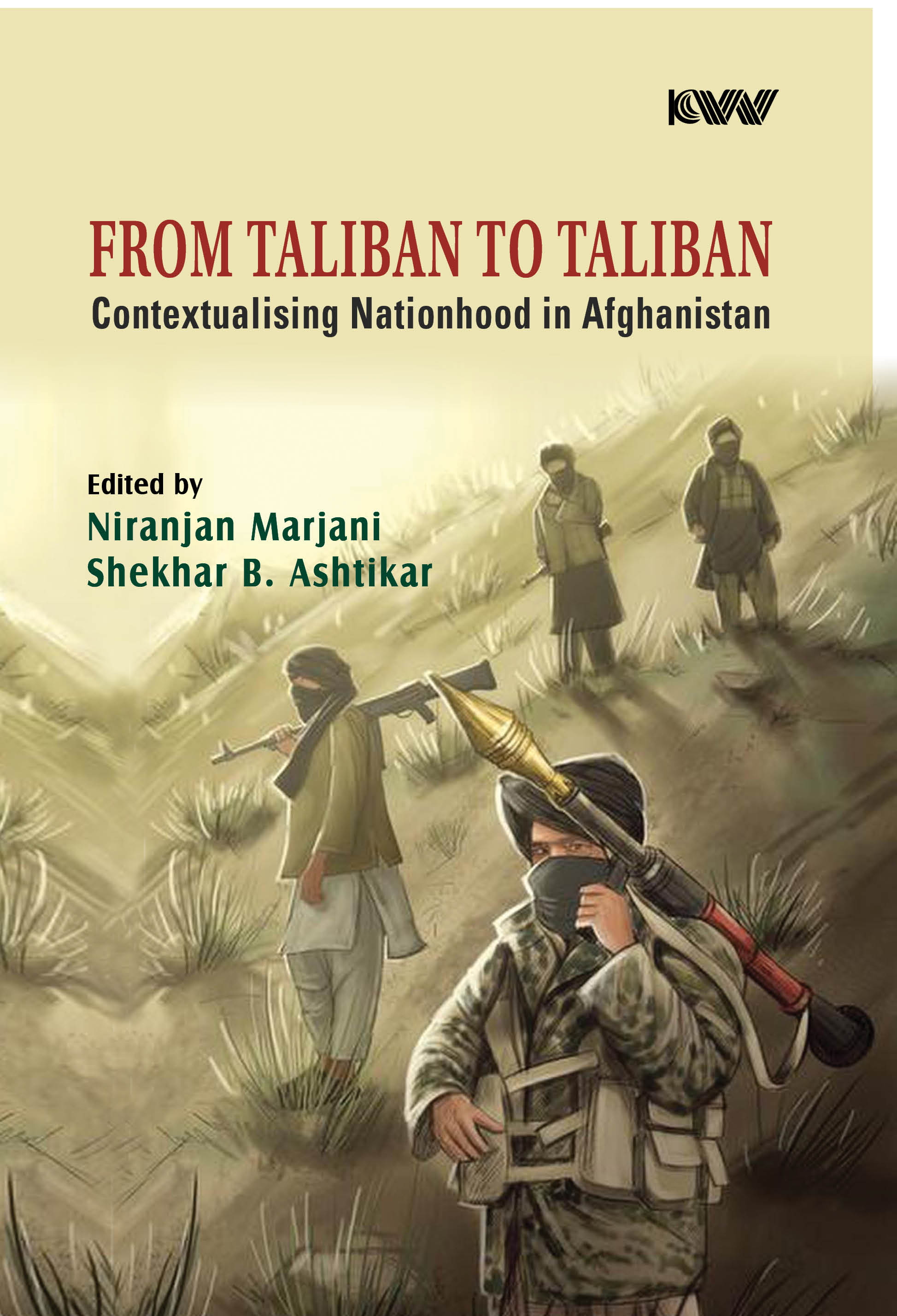Nation and nationhood are complex concepts that include several aspects like geography, shared history and culture, ethnicity, language etc. This book ‘From Taliban to Taliban: Contextualizing Nationhood in Afghanistan’ examines how the concept of nationhood fits into Afghanistan as a society and as a political entity.
The experts contributing to this book have explored the concept of nationhood in Afghanistan from diverse perspectives which range from ethnic fault lines to the governance structure. As the book title suggests, Taliban appears as a central theme. However, Taliban here implies that the tendencies shown by the Taliban, like pursuing religious conservatism and extremism and ethnic supremacy to rule the country, have existed throughout the history of Afghanistan. Various rulers and political dispensations have positioned these as factors binding the nation.
This book will interest policy-makers, academicians, students, and general readers alike who want to know about what is happening in Afghanistan.
Edited by: Niranjan Marjani | Shekhar B. Ashtikar
Niranjan Marjani is an independent political analyst and researcher based in Vadodara, India, specialising in International Relations and Geopolitics. He collaborates with Indian and international publications and think tanks. He has written over 300 opinion/analytical articles. He has also written research papers and book chapters and has presented papers at national and international conferences. Currently, he is pursuing his Ph.D. from the Maharaja Sayajirao University in Vadodara. His research topic is ‘India-Spain Relations in the 21st Century: Dynamics and Prospects’. He is associated with New Delhi-based magazine, The Kootneeti Español, as Consulting Editor and with Pune-based think tank, Tatvita-Analysts, as Country Specialist-Spain. He also offers consultation as a political risk analyst to Indian and foreign corporate entities.
Dr Shekhar Ashtikar is a former post-doctoral research fellow in International Relations.. Besides, he has presented research papers in many national and state conferences. He has completed many courses on important topics related to global politics offered by many foreign universities. His research areas include India’s foreign policy under the Modi government, power competition in the Indo-Pacific region, India’s relations with the Indian Ocean Region, the Indo-US strategic partnership, and Indo-China relations.
Contents
Foreword
Preface
Acknowledgements
1. Routes and Roots: Unveiling the Layers of Afghan Nationalism
Saman Ayesha Kidwai
2. Afghanistan’s Nationhood: Shaped by the Taliban
Shirish Waghmare
3. Doctrine in the Mountains: Unravelling the Taliban’s Ideology Tapestry
Vaasu Sharma
4. Nationhood in Afghanistan through the Lens of the Great Game and the Graveyard of Empires
Shekhar B. Ashtikar
5. Afghanistan’s Nationhood from the Perspective of Ethnicity
Niranjan Marjani
6. Understanding the Shifting Interplay between Tribes and Ethnic Groups in the Contemporary Political Dynamics of Afghanistan
Rushita Shetty
7. Analysing Pashtun Nationalism in Afghanistan
Kshipra Vasudeo
8. Impact of the Tajik Ethnicity Factor on Tajikistan’s Ties with Afghanistan
Aditi Bhaduri
9. Fractured Nationhood: Taliban’s Exclusionary Practices and the Marginalisation of the Hazara Community in Post-2021 Afghanistan
Ziba Akbari
10. Gender Violence in Afghanistan
Sanchita Bhattacharya
11. Ethnic Conflict in Afghanistan: The Struggle for Inclusive Governance under the Taliban
Puspa Kumari
12. Consultative Democracy: An Embryonic Model for Afghanistan’s Fragile and Fractured Geopolitical Matrix
Kondaraju Sandeep Royal
13. The Taliban and Afghan Politics: An Introspective Study
Manas Chakrabarty
14. Illusive Peace in Afghanistan: Ethnic Conflict and Possibilities of Peace
Ranjita Chakrabarty
Contributors
Index


 Political Science
Political Science
